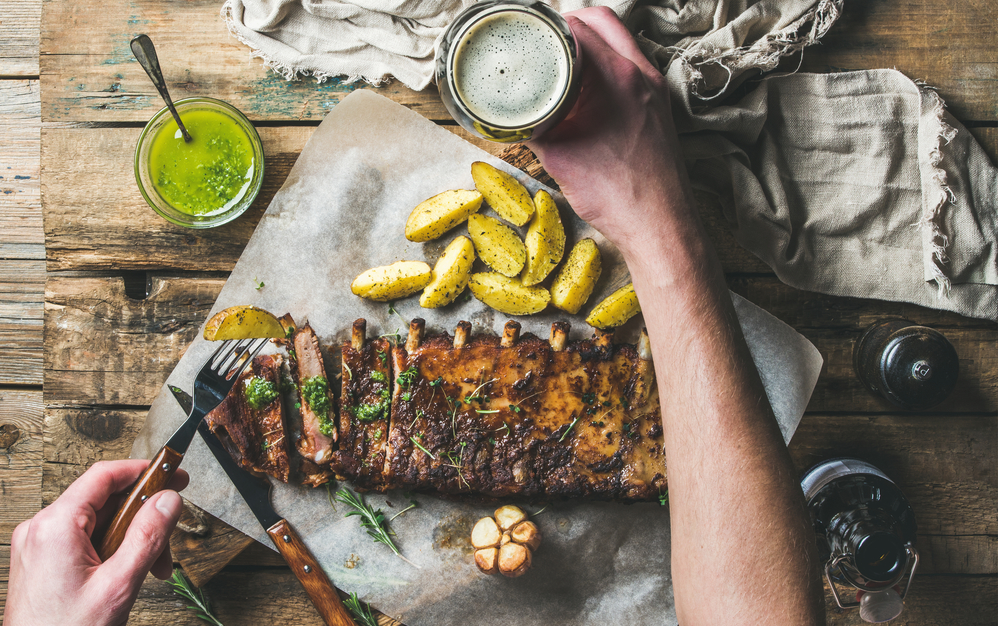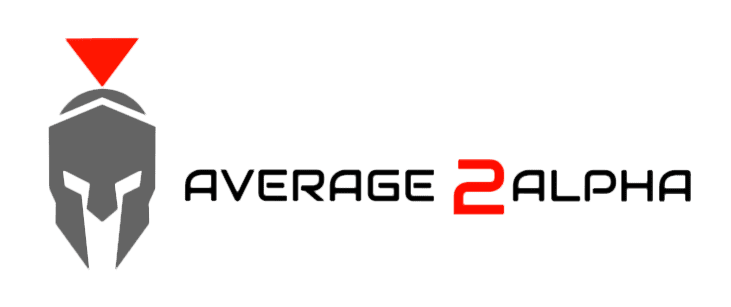There is a lot of misconceptions about the effects that protein has on a men’s testosterone level and overall hormonal health.
Most of what is commonly understood about the relationship between the two compounds is spread by word-of-mouth.
Unfortunately, most of what is commonly understood is not the truth.
Protein and Testosterone
There are some well-known facts about the relationship between protein and testosterone that have led to this common misconception.
 First off, it is well known that protein deficiency can cause the body to produce much less testosterone than it should. And this can lead to a significant loss of muscle mass.
First off, it is well known that protein deficiency can cause the body to produce much less testosterone than it should. And this can lead to a significant loss of muscle mass.
Many people see this as a suggestion to overcompensate. Why just eliminate the deficiency when you can eat as much protein as you want?
Also, since the body uses testosterone to help with the synthesis of protein from amino acids, then people think getting extremely high levels of protein will cause freer testosterone to be available in the blood instead of being used to create protein.
Both of these assumptions lead to one suggestion: eat as much protein as possible. This is so widespread that many bodybuilding websites and programs encourage people to consume high protein diets – some people consume as much as 50% of their calories from protein.
People are often told that protein is the major contributing factor to the creation of testosterone. While it is necessary to have some protein to create testosterone, it’s not the only important building block.
Many other nutrients are required for a healthy hormonal system. More important than high levels of protein is ensuring that you have a good balance of different nutrients.
Protein, Carbohydrates and Fat
A lot of bodybuilders think that they should eat as much protein as they can and cut out as many carbs and fats from their diet as possible. This makes sense on the surface:
- If protein is responsible for the growth of muscle mass, then we should get as much of it as possible to see the most muscle gains, right? Wrong.
- If carbohydrates are used as energy, and our body stores excess carbohydrates and calories as fat, we should keep our carbohydrates low and protein high, right? Wrong.
- This one’s obvious. If we’re trying to build muscle, we want protein, so why would we want a high-fat diet? Fat will just overshadow our gains, right? Wrong.
These are common assumptions that form the guidelines for many athletes and bodybuilders’ diet programs. Unfortunately, this particular diet is a recipe for a low testosterone and a high cortisol hormonal system.
First off, one of the most important things a bodybuilder needs is a good balance of these nutrients. Yes, fat is a nutrient. Anyway, here’s how these nutrients each impact your hormone levels and your muscle growth.
Protein and Carbs
The optimal percentage of protein for an athlete’s diet is around 12-15%. Protein levels in this range revealed the highest serum levels of testosterone when compared with people who had a diet that contained between 20%, 25%, or 30% protein
It’s also important that the ratio of protein and carbohydrates is paid attention to. People who eat diets that are very high in protein and low in carbohydrates, which is typical for many athletes, have significantly lower levels of testosterone.
However, those who have diets that are high in carbs and lower in protein have much better levels of testosterone in the body.
Carbs are Champions
The information above suggest that carbohydrates have a much bigger impact than protein on our body’s production of testosterone.
If you are really looking to boost testosterone levels, don’t focus so much on protein.
A high-carbohydrate diet will also help you lower levels of cortisol, which is pretty much the worst hormone a bodybuilder could have in abundance.
Cortisol works in the opposite way of testosterone, helping your body break down muscle instead of building it.
Fats and Testosterone
Studies have shown that people who have low fat diets are less likely to have high concentrations of testosterone.

In fact, one study that was done on 12 volunteers – all men who were familiar with working out – proved that fat can have an acute and significant natural steroid effect on testosterone levels.
The study observed serum levels of testosterone in twelve men over the course of 17 days. Those who ate diets high in fat were shown to have higher levels of testosterone both during the day (which could provide them with more drive and motivation to put in extra effort at the gym) and during the well-known post workout testosterone boost.
Protein in Older Men
Most of these studies were done on younger men. If you are an older man, between the ages of 40 and 70, then the rules might be a little bit different for you.
Middle-aged and older men respond better to higher protein diets than younger men. They are less likely to have their testosterone production inhibited by a little extra protein.
Men who have consumed low protein diets, who then switch to a high protein diet later in life, will see the most significant benefits. (Though this doesn’t mean that you should eat a low protein diet for your early life just so you can switch to a high protein diet later.)
Also, older men have shown that they produce more sex hormone-binding globulin (SHBG) when they eat diets that are low in protein.
SHBG is a compound that our body produces that binds to sex hormones like testosterone. The higher the blood serum concentrations of SHBG are, the more testosterone will be bound by it, and the lower the overall levels of free testosterone in the body will be. For this reason it’s very important to reduce SHBG as much as possible.
Conclusion
Fortunately, we don’t have to entirely rewire our brains to process this information. All we have to remember is that it’s important to maintain the proper ratio of protein, carbohydrates, and fat in our diets.
All of these nutrients work together to create a hormonal system that functions properly. For the best production of testosterone, you aren’t going to want to consume more than 15% protein. Make sure your body gets plenty of good quality carbohydrates and fats as well.
About the Author
By Sean Ward, Founder of Naturally Boost Testosterone, a men’s health blog dedicated to providing natural ways for men to boost hormone levels. Check out www.naturally-boost-testosterone.com to learn more about Sean and his work. You can also find him on Twitter, Pinterest and Facebook








